History lives from telling stories. An ancient culture like China’s has many to offer. We can learn from them: about the country, about how it looks today, and perhaps also how this new world power will look in the future.
Deeply rooted in China’s history and mythology, for example, is the Xiyouji (西游记), the novel „The Journey to the West” dating from the Tang Dynasty period and written down in the 16th century, during the reign of the Ming emperors (明朝). It recounts a wealth of adventures experienced by four travelers, the monk Tang Seng (唐僧), a monkey, a pig and a water spirit in search of Buddhist enlightenment in the „Western Heaven“ (西天), in what was then Central Asia and India. This is where caravans connected the East and the West on what Europeans later called the „Silk Road“ (絲綢之路). It is literary fun, an entertaining kaleidoscope that was meant to explain and make the wondrous fascination of the foreign West comprehensible to the people of China.
This is where Xi Jinping, General Secretary of the CCP since 2012 and President of China for life since 2013, picked up with his great project, a „new Silk Road“ stretching from Beijing across Central Asia to the West and spanning the seas. „I hear the camel bells ringing and see the smoke of the oasis fires rising,“ Xi Jinping said when he presented Beijing’s idea in Kazakhstan in 2013 spend a lot of money to build roads, railways and to even better link the countries of the world.
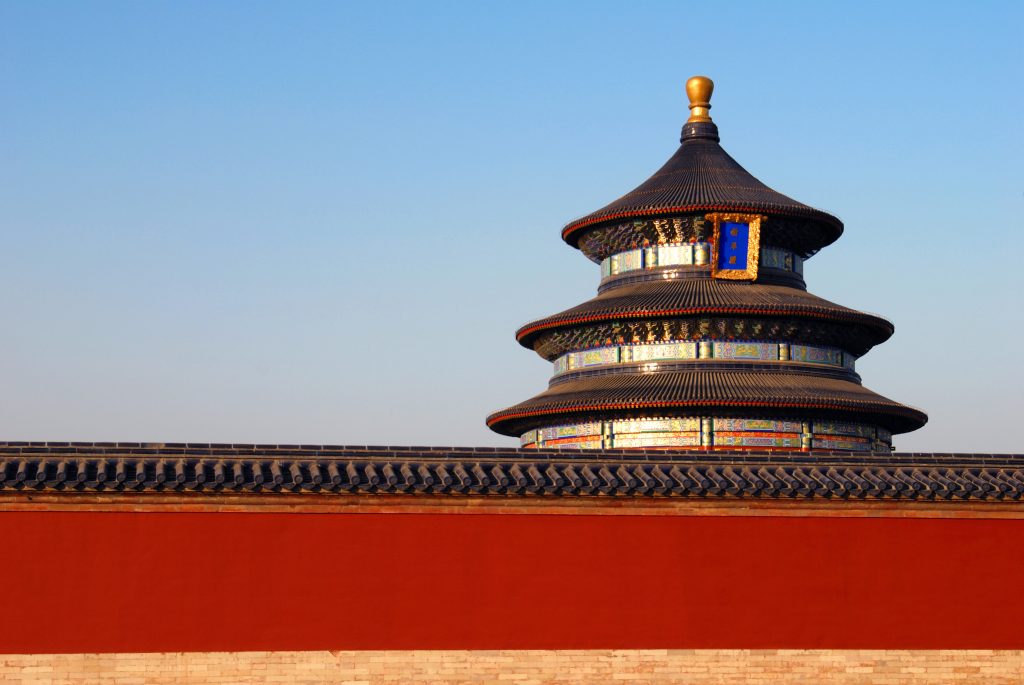
But unlike in the Xiyouji era, China is no longer curiously seeking out the wonders of the distant world and the wisdom of foreign lands. Instead, it is building railway lines as far away as Duisburg, Porto and London, dredging ports in Sri Lanka, Djibouti and Piraeus, and paving roads in Montenegro, Tanzania and Pakistan.
The purpose of this project is to sell Chinese goods everywhere, and at the same time to send Chinese workers to Southeast Asia, South America or Southwest Africa to earn wages and bread. Once shipped around the world, they then use Chinese capital and know-how – this is the new „wisdom“ of the East – to build infrastructure projects of gigantic proportions. For such gigantomania, the often small and mostly poor recipient countries fall into debt with Beijing for decades, having to submit to Chinese jurisdiction; and so Beijing sets the tone worldwide.
We also benefit from the success of China’s newly acquired power.
However, this is no longer the friendly tone of an ancient friendly travel narrative. It is the language of a new world power. China is now the second largest economy on earth, dominating large parts of the international supply and trade chains, hundreds of millions of Chinese have worked their way up from a state of absolute poverty, studying, travelling and working abroad. They enjoy a level of prosperity that would have been unthinkable before the so-called „reform and opening policy“ began 40 years ago.
We also benefit from the success of China’s newly acquired power. The price of our iPhones would probably be unaffordable if they had not been assembled in China. And we’d better not even begin to calculate the turnover of European companies had they no Chinese buyers for their goods. Reason enough to be glad that the interconnectedness of our globalized and digitalized world has been enriched by such a profitable player as China. However, we should know exactly who we are dealing with when we encounter this China and this CCP.
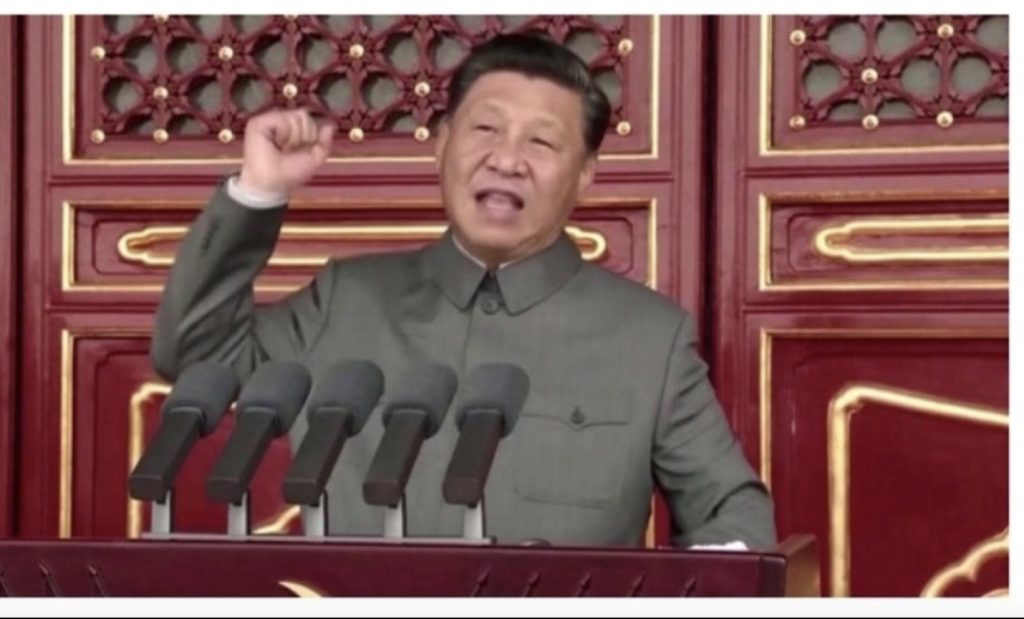
The CCP likes to talk about history, and also Xi Jinping is fond of doing so. China is 5000 years old, the story goes, but for 100 years it was humiliated by Western imperialists and Japanese aggressors. Now, thanks to the CCP, the time of China’s reawakening – its “rejuvenation” – has come. Now the country will regain its rightful place in the world. In the bestseller „The Chinese Dream“ by Liu Mingfu from 2010, it is said that it is China’s „destiny“ to lead the world. „The Chinese Dream“ was Xi Jinping’s catchphrase when he seized power in China in 2012.
Nations, as we know from the social scientist Benedict Anderson, are „imagined communities“. People imagine a common „nation“ when they feel threatened by a rapidly changing environment and seek protection in a sense of belonging. This happened with the independence and founding of the United States in the 18th century, in Europe and Latin America in the 19th century, and it is still happening today, as we see again and again in the struggle for state sovereignty around the globe.
George Orwell: „He who controls the present controls the past. He who controls the past controls the future.“
In China, the CCP uses this human craving for safety and security for its purposes of maintaining power. In its historiographical narrative, there are no peoples who, over the course of many dynasties (including many non-Chinese ones), gave rise to the particular amalgam that we understand today as Chinese culture and China. In this CP-authorized history, there is only one millennia-old, unchanging Chinese „people“, oppressed by the „West“, and finally liberated by the CCP. The CCP has thus been granted the right to rule China by the „people“. And that in a totalitarian way and, who knows, for all eternity.
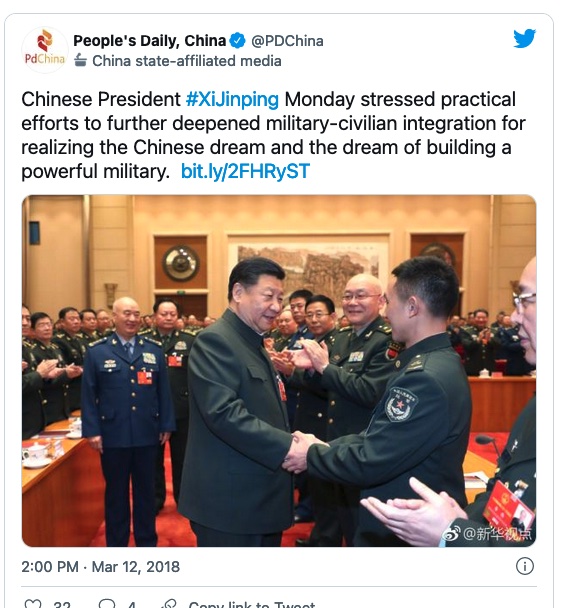
Totalitarian rule means that there are no boundaries between the lives of citizens and the Party’s all-encompassing claim to rule. The CCP digs far back into history to explain this. In the meantime, even Confucius, the philosopher who lived 2500 years ago and actually aspired to a perfectly governed and functioning feudal society, is being invoked for this purpose. Thus, as the propaganda now says, he envisaged precisely those „socialist“ social structures that the CCP has realized today, with the party and state leader like a father – or emperor? – at the top, the party secretaries who, like the mandarins in the past, implement the will of the ruler, and with a people who love their ruler and obey him to the letter.
Of course, this is a thoroughly fake „Confucius“ . Master Kong (孔夫子) has tried to understand the world philosophically and has developed complex lines of thought that are far removed from the simple, black and white world of the CCP. Yet it is worth instrumentalizing him for the purposes of the party, and even in the West the name of this great thinker can be used; think of the „Confucius Institutes. What this amounts to is shown by George Orwell in his novel „1984“, in which a party secretary says: „He who controls the present controls the past. He who controls the past controls the future.“
Does the CCP control the future? We can see what this might mean for China by looking further into history. From 1368 to 1644, China was ruled by the Ming Dynasty. The Ming (明朝) had replaced the Mongols, the founders of the Yuan Dynasty (元朝), as rulers of China. They in turn were ousted from the throne by the nomadic Manchu people, the founders of the Qing Dynasty (清朝). That’s why the Ming rulers had good reason to fear foreign peoples. They built the Great Wall of China as we know it today, a bulwark to keep out the nomadic peoples of the northern steppes.
Liu Xiaobo: „A strong country needs no wall“.
Moreover, against the threats that might come across the sea, the Ming court enacted laws that commanded that no settlement should be closer than ten miles from the coast, and no one should sail the sea except for the purpose of coastal fishing. Even the great imperial voyages of exploration in the Indian Ocean were prohibited during the Ming reign. Traders and missionaries from Portugal, Spain and the Netherlands arriving in China from the 16th century onwards were only allowed to settle in designated places such as Macau or Canton, and were only allowed to move around the country with guards.
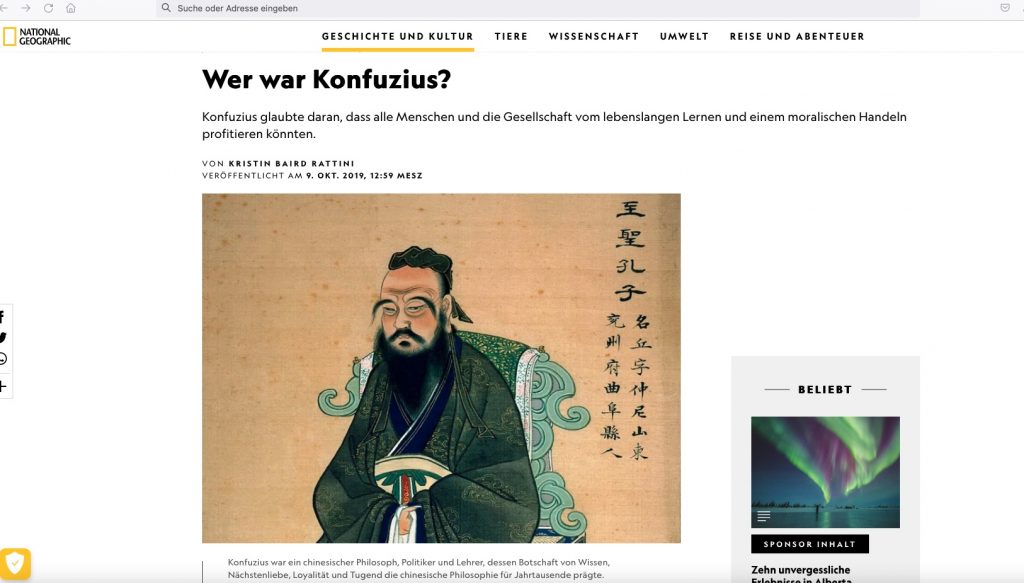
Liu Xiaobo (刘晓波), the famous Chinese democracy fighter, political prisoner and 2010 Nobel Peace Prize laureate who died of untreated cancer in a Chinese prison in 2017, once told me, „A strong country does not need a wall“. The CCP sees it differently. As early as 1991, the later Chinese president Jiang Zemin (江泽民) wrote in the Party newspaper Renmin Ribao („People’s Daily“ 人民日報“) that every Chinese must build „a Chinese Wall of Steel“ in his heart.
This desire to protect oneself against supposed dangers from abroad, this has become the obsession of an entire country under Xi Jinping, which is now indeed reminiscent of the Ming dynasty. Reading non-Chinese literature is now forbidden in Xi’s China, unless it is professionally required. The import of films, TV shows, music, especially from the West, is severely restricted and tightly controlled. Films without positive Chinese protagonists have no chance of being shown in China and Hollywood has long since adjusted its production to this.
Last year, the CCP decided to introduce a so-called „dual circulation“ (双循环) for the Chinese economy. This means to limit economic and trade exchange with foreign countries to the minimum necessary for China. At the same time, foreign companies in China learn that they are no longer wanted as soon as there are Chinese companies that can produce the same products.
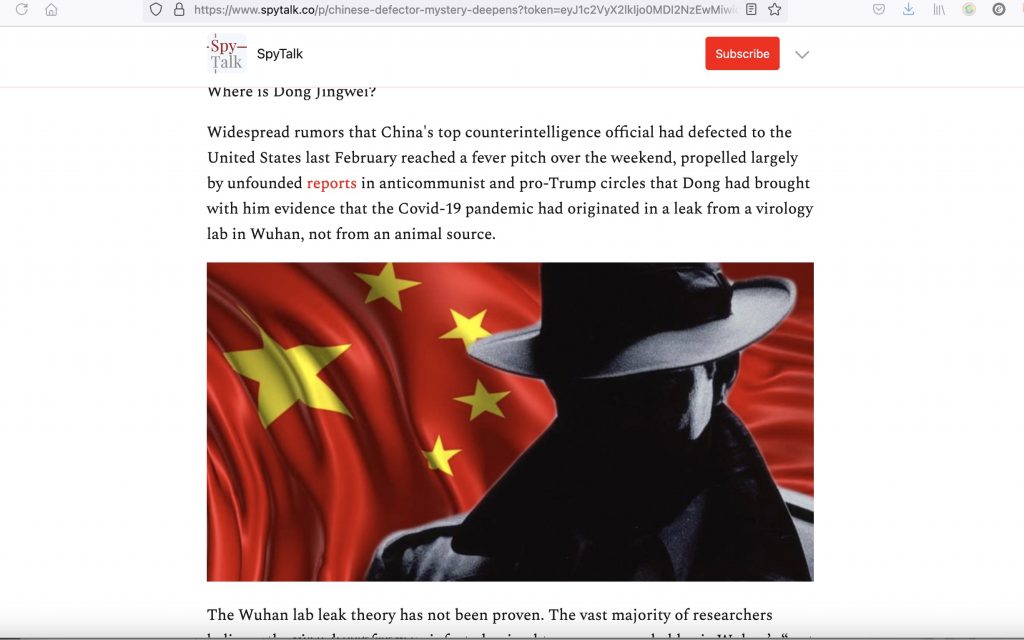
The companies that are allowed to stay are supposed to employ Chinese staff up to the executive level and, in cooperation with the Party, to largely adapt their structures to those of state-owned enterprises. As a consequence, according to the census of 2020, nowadays only 845,697 foreigners reside in China, and most of them come from neighbouring countries like Myanmar or Vietnam. By comparison, tiny Luxembourg is home to about 300,000 foreigners, more than Beijing and Shanghai combined.
The Corona pandemic has made it easier for the Party to wall in the country even more effectively. Strict quarantine rules deter those willing to travel to China. The control of its own population with electronic measures, the „social credit system“ (社会信用体系) already abundantly described in our media, can now easily be extended further and further for the purpose of supposed pandemic prevention. Xi Jinping still appears internationally as a representative of globalization and cross-border cooperation. In fact, he is removing the country from its international ties as long as they are not for the benefit of the CCP.
The surveillance in social media is ever more total, video cameras florish everywhere, and ever stricter laws are promulgated against anything that could be dissent.
Anyone who has spent a little time in China, who is fascinated by its complex, diverse culture, who has interacted with so many curious people there who are open to the surprises of this world, is stunned by these developments. It depresses the observer to see how all this affects the inner life of Chinese society. The surveillance with the help of the social media becomes ever more total, video cameras flourish everywhere, and ever stricter laws are promulgated against anything that could be dissent. Actors who don’t look „manly“ are no longer allowed to appear on TV, stars who earn too much are ostracized and mobbed on the net. Successful companies – mainly from the internet sector – have to cede large parts their profits to the state. Schoolchildren are no longer allowed to learn English, but must be able to recite Xi Jinping’s „thoughts“ by heart. Screen time is now prescribed by law for children and young people under 18 (perhaps a dream of many a Western parent) – only three hours at the weekend. Video games, moreover, must be politically and historically “correct”, otherwise they will be banned from the net.
Here, too, the pandemic facilitated the implementation of these measures because fear of the party was complemented by fear of the disease. Only the Party – or more precisely, only Xi Jinping personally – could provide help. Now there is room for a plausible narrative of how badly democracies have dealt with the danger, and how exquisitely the Chinese have fared, allowing themselves to be locked in their homes for months under massive threats of physical violence.
Two campaigns are therefore being prepared for next year’s XX. Party Congress of the CCP. One aims at redefining Chinese history of the last seventy years. What has so far appeared to be a „mistake“, such as the murderous „The Great Leap Forward“ in the 1950s, will be washed white. In addition, society is to be positioned further to the „left“. From now on, only „Xi Jinping Thought„, which is already enshrined in the constitution, will count as an ideological guideline.
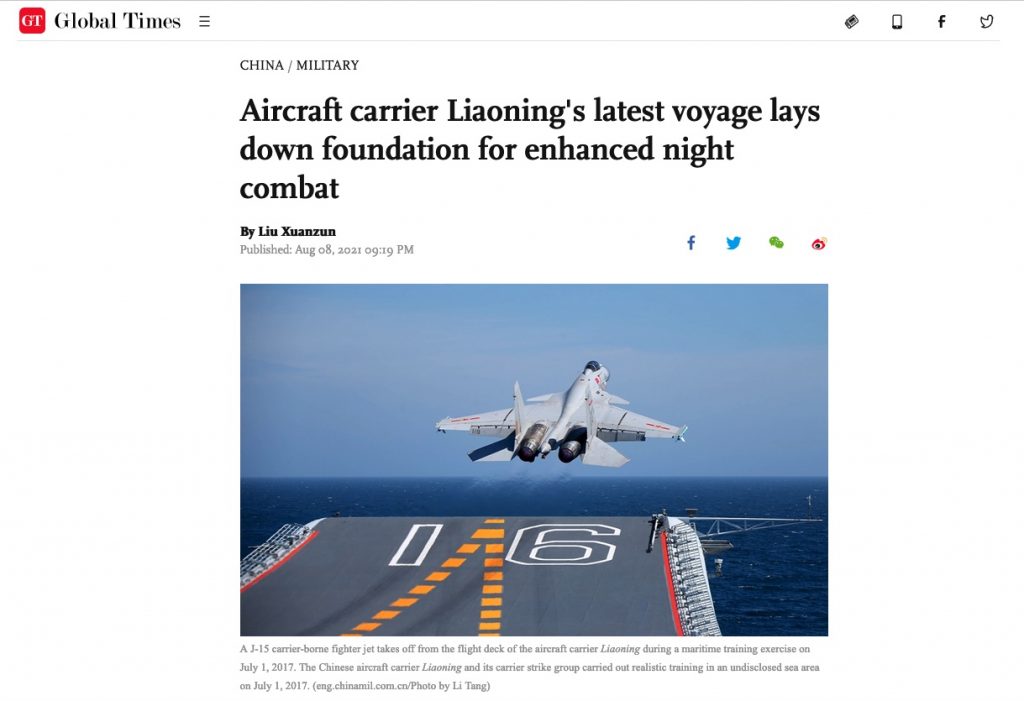
This is likely to be a continuation of what we have already seen as the CCP’s policy of expanding its activities beyond the country’s borders. It is not just a matter of enforcing Chinese contractual conditions worldwide, as we are already seeing with the „New Silk Road“ . It is not just about China militarily securing sovereignty over sea areas the size of Mexico in Southeast Asia, its soldiers attacking across the border in India, or terrorizing Taiwan on a daily basis with flights of its fighter jets and navy. State television CCTV proudly reported that on China’s National Day, 1 October, 38 fighter jets flew close to Taiwan as a „military parade in the air“.
There is much more:
- Now Beijing unhesitatingly detains foreign citizens as hostages, for example, when a Chinese national might be implicated in a criminal case in Canada, and releases the Canadians taken as hostages only after its own national returns.
- Recently, the so-called Beijing „wolf warrior diplomats“ sent the Australian government a list of 14 demands for „better behavior“. These demands had to be met if Australia wanted to avoid economic sanctions. The reason: Canberra had publicly demanded that Beijing investigate and disclose the true causes of the Corona pandemic.
- More and more book publishers, also in Europe, see themselves excluded from doing business in the People’s Republic if they publish books with statements on the Pandemic’s origin conflicting with Beijing’s version, or with maps that do not reflect Beijing’s territorial claims; e.g. Taiwan, the South China Sea and disputed areas in the Himalayas must be marked on maps as belonging to China.
- The 1997 treaty with Britain on Hong Kong’s political freedoms and constitution is unilaterally declared null and void by Beijing.
- And now a new security law has been threatening non-Chinese with punishment since this year if they take positions that are not in line with the CCP’s political guidelines – even if these „violations“ did not happen in China at all.
We can understand this as a farewell to the values of Enlightenment universalized in the UN Charter.
All this sounds frightening, and we may at first be reminded of the aggressive behavior of the former Soviet Union. But what the Economist recently called „China’s new reality“ is fundamentally different from the old Western confrontations with the USSR. For all the imperial ambitions of the Russian communists, as a Marxist party, were still flesh of our flesh. That is to say, they too felt committed to the legacy of the Enlightenment.
This is different in the case of the PRC. The CCP professes so-called „Socialism with Chinese Characteristics“ (中国特色社会主义) which is to say China’s communists offer the world to follow so-called „Chinese solutions“ to its problems – in other words, to obey the CCP’s dictates. We can understand this as a farewell to the values of Enlightenment universalized in the UN Charter.
It is also a farewell to the rules that keep our complicated globalized and pluralized world going. For example: if Beijing had followed the rules of the World Health Organization at the end of 2019, e.g. had quickly reported the first cases of Corona and allowed international experts access to the People’s Republic – how many hundreds of thousands or millions of people would still be alive today?
But the CCP and its leader Xi Jinping are only concerned with their own reputation. And that is why we see this Party, which is „always right“, driving the world into disaster, while critics of Beijing’s pandemic policy are punished.
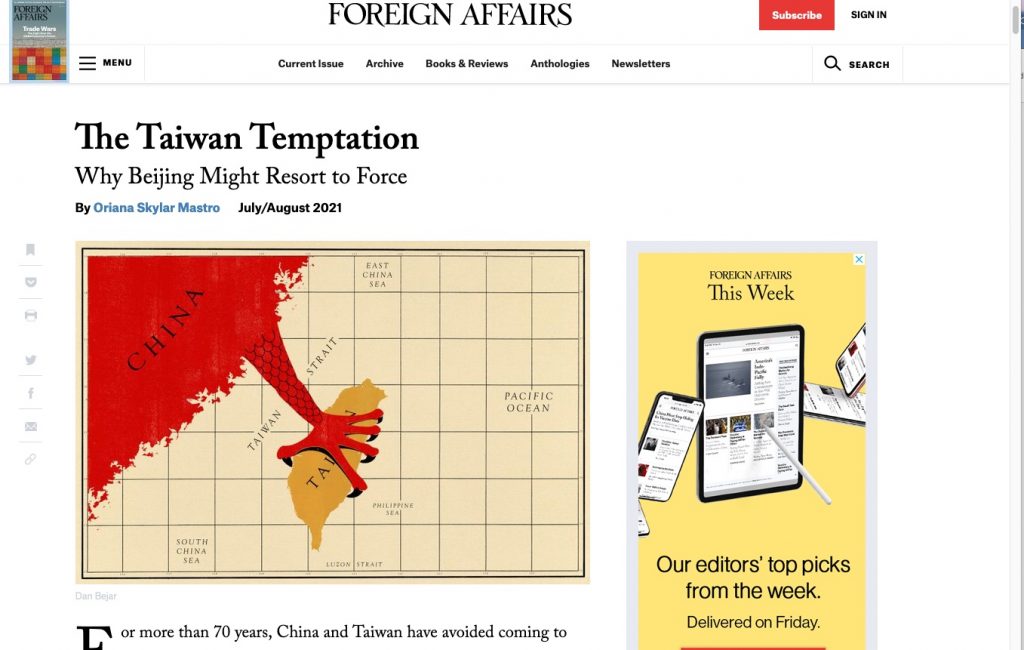
But beware! In principle, all this is entirely legitimate. There is no unalterable commitment to the values of the Enlightenment for the states of the world, even if they have signed up to them once, like every member of the United Nations. Anyone can opt out, because we do not have a world government. After all, what we understand as „Enlightenment“, that is, the pursuit of rational judgement, individual freedom and individual „happiness“, is a story of continuing struggle going back at least to the Greek philosophers, with long, painful and gruesome setbacks – and we Germans in particular know all too much about it remembering the 20th century. Nevertheless, when dealing with a new and influential world power, we should know exactly who and what challenge we are dealing with.
Naturally, the people in China know this dilemma best. They draw consequences from it that at first glance seem strange to us. The comparatively few dissenters and critics of the regime who see clearly what is happening to their country and therefore criticize and accuse the CCP, find little resonance among their compatriots.
At a recent international panel discussion at the „International Literature Festival Berlin“, seven out of eight panelists were of the opinion that a democratic transition in China was out of the question. The reason: the vast majority of the people had accepted the CCP’s offer to enjoy prosperity in exchange for political silence. They must lead a life as prescribed, and shut up. Only one panelist could imagine the democratization in China, but only as the result of a coup within the CCP.
The most committed minds, dissidents and people who are willing to risk even their lives for change in their country, they have to leave China in the end. But this does not happen in the form of a „brain drain“ , an exodus of scientists and experts who seek and find more income elsewhere. China is worse off. The country is suffering an intellectual loss. All this is happening to a great and ancient culture that has been an asset to world culture. We are missing this culture now, especially in the time of great global upheavals, an epoch in which we actually desperately need new ideas and creative thoughts everywhere.
Locked behind a new Chinese Wall, the red mandarins can hire 1.4 billion people at will to maintain their power.
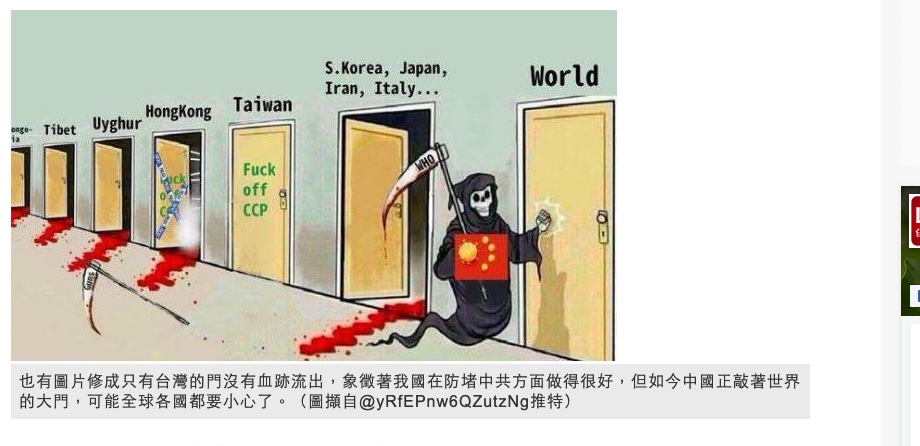
Goethe said that free intellectual exchange benefits people as much as free trade of goods. The CCP, however, sees intellectual freedom as a threat to its power. It has looked back into history and learned from it what suits it best. It wants to create a society that is enclosed like, this is another old Chinese fable, a frog trapped in a well (井底之蛙)and thinks the section of sky it sees above it is the whole world.
Locked behind a new Chinese Great Wall, the red mandarins can employ 1.4 billion people at will to maintain their power. Businesses fearfully follow the dictates of the state economy and people function as obedient subjects who think and say what the Party tells them to.
Hence, we watch helplessly from abroad as people who can imagine a different, more humane system are banished or even killed, such as the Nobel Peace Prize winner Liu Xiaobo, or the writer Liao Yiwu. We can but watch how an ancient religion is destroyed in Tibet or how more than a million Muslims are locked up in camps in Xinjiang.

This is precisely why we must try to make sense of what is happening in China, the most populous country on earth and one of two superpowers. We should understand how deeply tragic this development threatens to become. We can learn a lot about China and its culture from the courage of people like Wei Jingsheng, Liao Yiwu, Liu Xiaobo and other dissidents. And if we imagine a common, a universal future with China, it is in the hope that this China will be a country shaped by people like them and their fellow sufferers.
(This essay appeared first on 23rd October 2021 in German under the title: „Xi Jinpings China: Wo die Vergangenheit die Zukunft ist“ on this website: Der Rikscha-Reporter).
Dr. Volker Stanzel, former German Ambassador in Beijing and Tokyo and Political Director at the Federal Foreign Office. He publishes on foreign policy issues and Asia and conducts research at the Stiftung Wissenschaft und Politik. He also teaches at the Hertie School in Berlin.
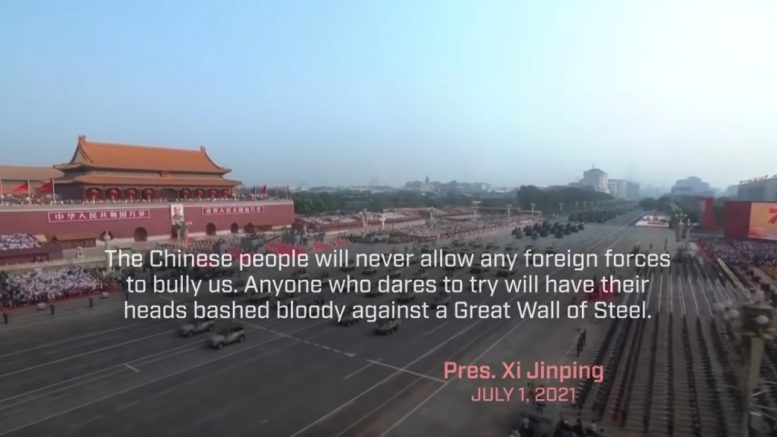

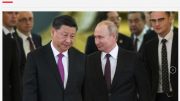
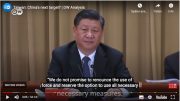
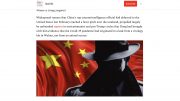
Kommentar hinterlassen zu "Xi Jinping’s China: Where the Past is the Future – By Volker Stanzel"